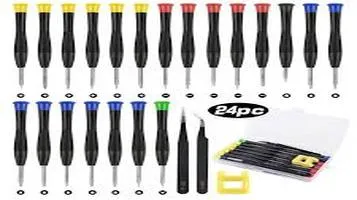Branded T-Shirts – A Comprehensive Analysis
Branded T-shirts are a staple in the fashion world, offering a blend of style, comfort, and personal expression. These shirts, often emblazoned with logos, unique designs, or catchy slogans, serve as a canvas for brands to communicate their identity and values. Made from high-quality materials like cotton or blends, branded T-shirts promise durability and a comfortable fit, making them a preferred choice for casual wear. Available in various styles, including crew neck, V-neck, and long-sleeve, they cater to diverse fashion tastes. Whether sporting a minimalist logo or a bold artistic print, branded T-shirts allow wearers to make a statement effortlessly, making them an essential component of everyday wardrobes for individuals seeking both fashion and functionality.

In the realm of fashion, few items are as essential and universally cherished as the humble t-shirt. With its simple design and versatility, it is a staple in nearly every wardrobe. While basic, no-name t-shirts have their place, branded t-shirts offer something more: a blend of quality, design, and identity. This review delves into the various aspects of branded t-shirts, examining their merits and potential drawbacks.
Quality and Durability
One of the primary reasons consumers gravitate towards branded t-shirts is the promise of superior quality. Brands like Nike, Adidas, Ralph Lauren, and Supreme invest heavily in fabric technology and craftsmanship. The result is a product that often outlasts its generic counterparts. For instance, the use of high-quality cotton or cotton blends ensures the t-shirt feels soft against the skin while also being durable.
Branded t-shirts also tend to maintain their shape and color after numerous washes, thanks to advanced dyeing techniques and fabric treatments. This longevity means that while the initial investment might be higher, the cost-per-wear is often lower, making them a smart purchase for those who prioritize quality.
Design and Aesthetics
The design is another area where branded t-shirts shine. Brands employ talented designers who stay ahead of fashion trends, ensuring their products are not only stylish but also innovative. Whether it’s a minimalist logo tee from Calvin Klein or a bold, graphic print from Off-White, branded t-shirts offer something for everyone.
Moreover, the design elements of branded t-shirts often go beyond mere aesthetics. Functional features such as moisture-wicking fabrics, ergonomic seams, and tagless interiors enhance comfort and usability, making them ideal for various activities, from casual outings to intense workouts.
Brand Identity and Status
Wearing a branded t-shirt is not just about the garment itself; it’s also about what the brand represents. Brands like Gucci, Balenciaga, and Saint Laurent are synonymous with luxury and status. Sporting their logos can be a statement of personal style and social standing. For many, the brand identity is a crucial factor in their purchasing decision. It’s an expression of allegiance to a particular lifestyle, set of values, or fashion philosophy.
This brand identity also plays a significant role in consumer loyalty. Once a customer finds a brand that resonates with their style and meets their quality expectations, they are likely to become repeat buyers. This loyalty is often rewarded by brands through exclusive releases, limited edition pieces, and early access to new collections.
Ethical Considerations
In recent years, the ethical practices of fashion brands have come under scrutiny. Consumers are increasingly aware of the environmental and social impact of their purchases. Many branded t-shirts are now produced with sustainability in mind, using organic materials, eco-friendly dyes, and fair labor practices. Brands like Patagonia and Stella McCartney have been pioneers in this space, setting a high standard for ethical fashion.
However, not all brands meet these standards, and it’s crucial for consumers to do their research. Transparency in sourcing and manufacturing processes is becoming a significant selling point, and brands that fail to meet ethical expectations risk losing consumer trust.
Cost
One of the most significant barriers to purchasing branded t-shirts is the cost. High-end brands can charge exorbitant prices, making them inaccessible to many. However, it’s essential to consider the value proposition. As mentioned earlier, the superior quality and durability of branded t-shirts can make them a more economical choice in the long run.
Additionally, mid-range brands like Uniqlo, Zara, and H&M offer a balance between quality and affordability. These brands often collaborate with high-end designers to create limited edition collections, allowing consumers to enjoy designer aesthetics without the hefty price tag.
Fit and Comfort
Fit is a crucial aspect of any t-shirt, and branded options often excel in this area. Brands invest in extensive research and development to create fits that cater to various body types and preferences. Whether you prefer a slim fit, regular fit, or oversized style, there’s likely a branded t-shirt that meets your needs.
Comfort is equally important. The use of high-quality fabrics and thoughtful design features ensures that branded t-shirts feel good to wear, even for extended periods. This focus on comfort makes them suitable for a wide range of activities, from lounging at home to attending social events.
Conclusion
Branded t-shirts offer a compelling mix of quality, design, and brand identity. While they come with a higher price tag, the benefits often justify the cost. From superior materials and craftsmanship to innovative designs and ethical considerations, branded t-shirts provide value that extends beyond mere aesthetics. For those who prioritize quality and style, investing in branded t-shirts can be a rewarding decision, offering both immediate satisfaction and long-term benefits. Whether you’re a fashion enthusiast or someone who appreciates well-made clothing, branded t-shirts are a worthy addition to any wardrobe.






